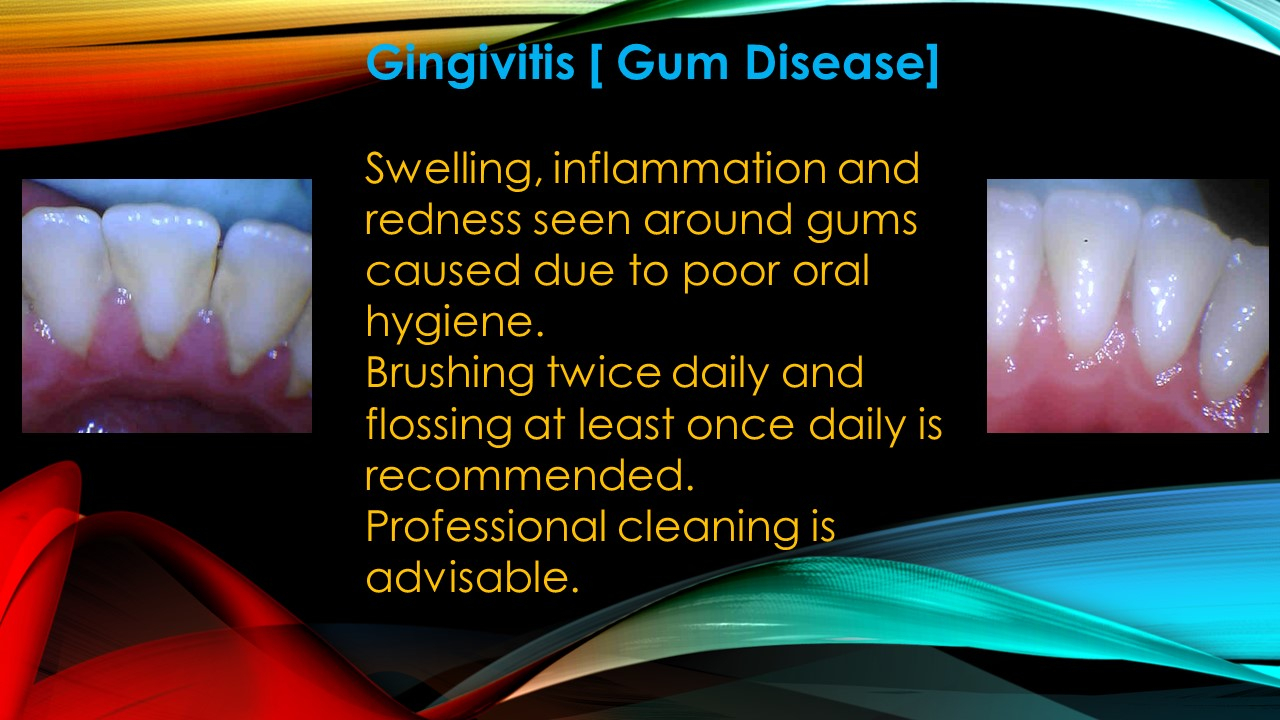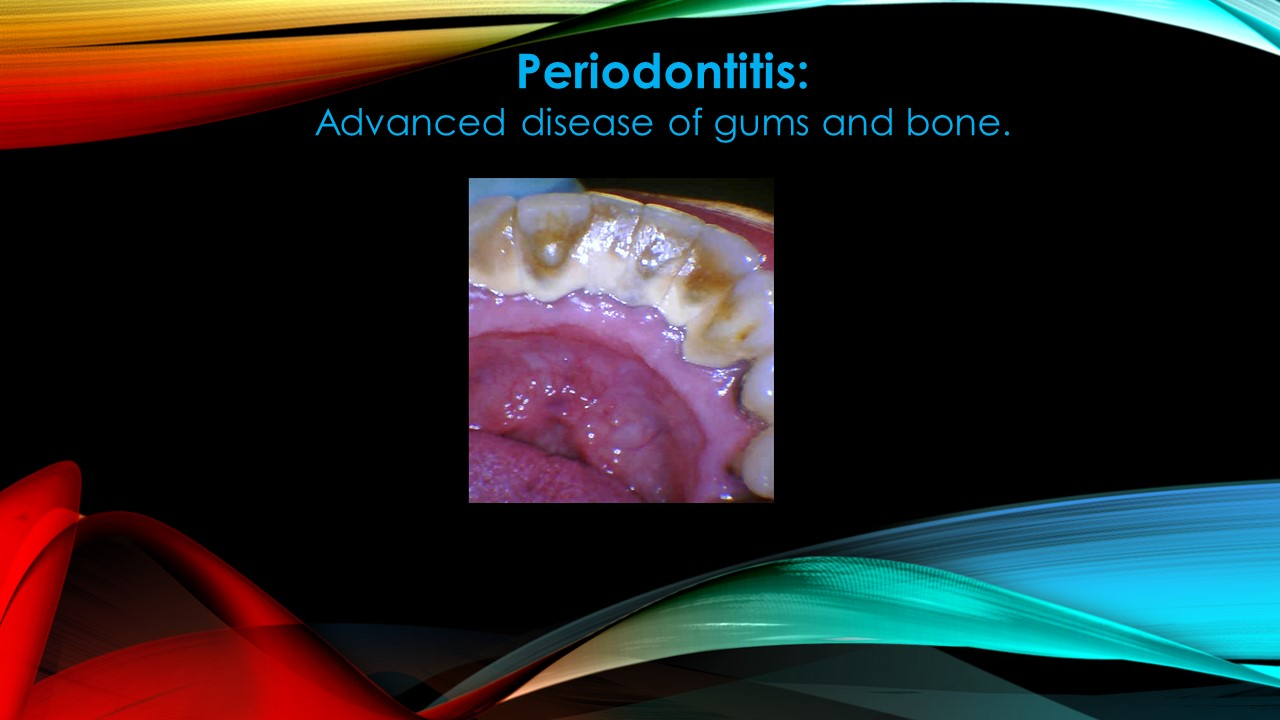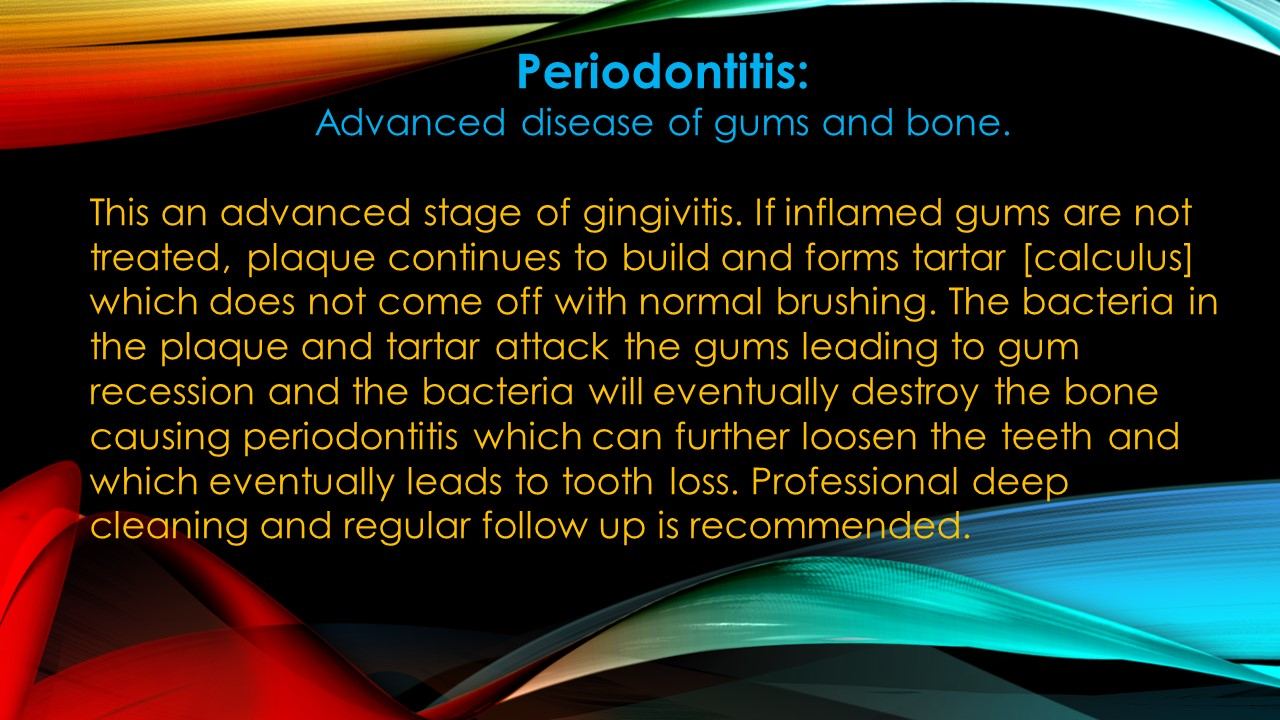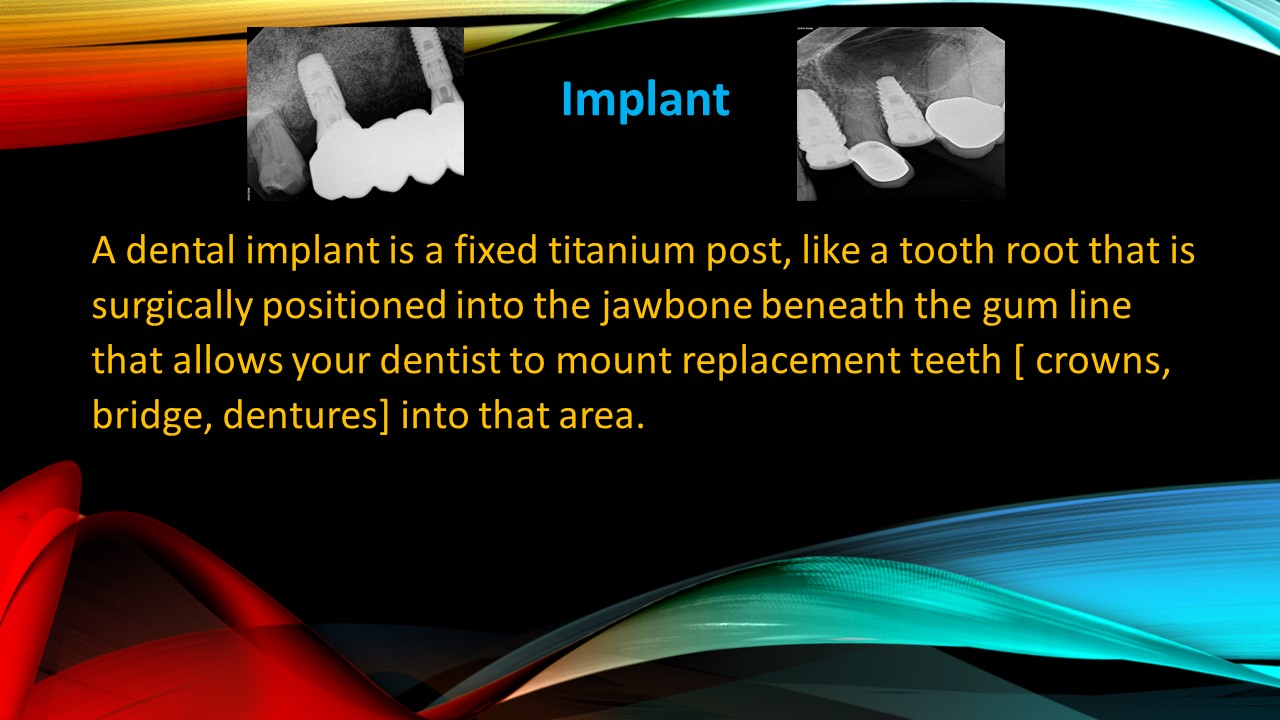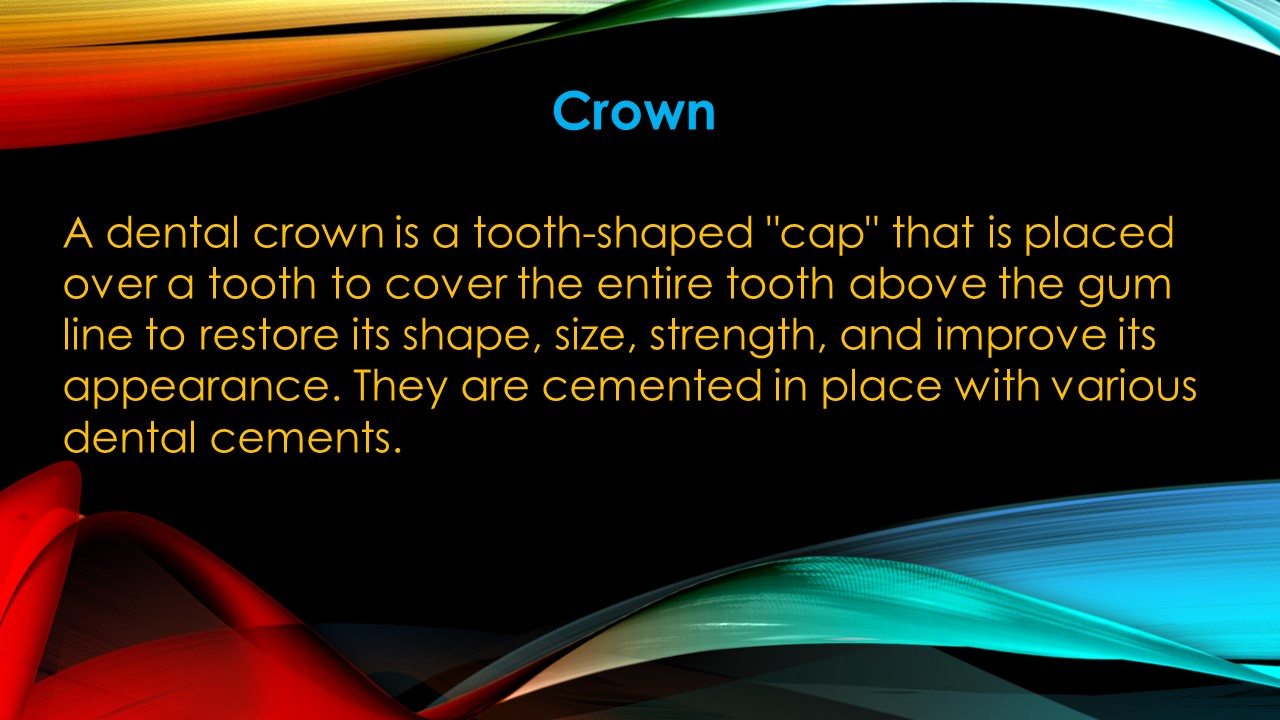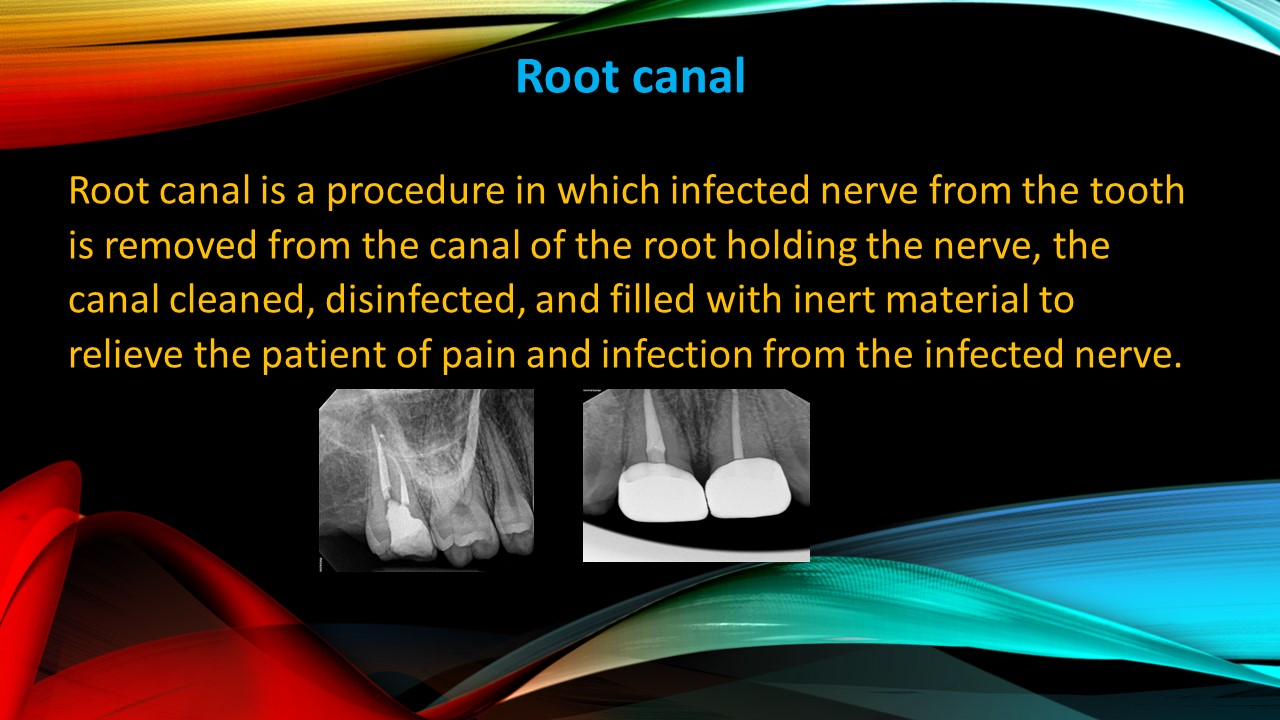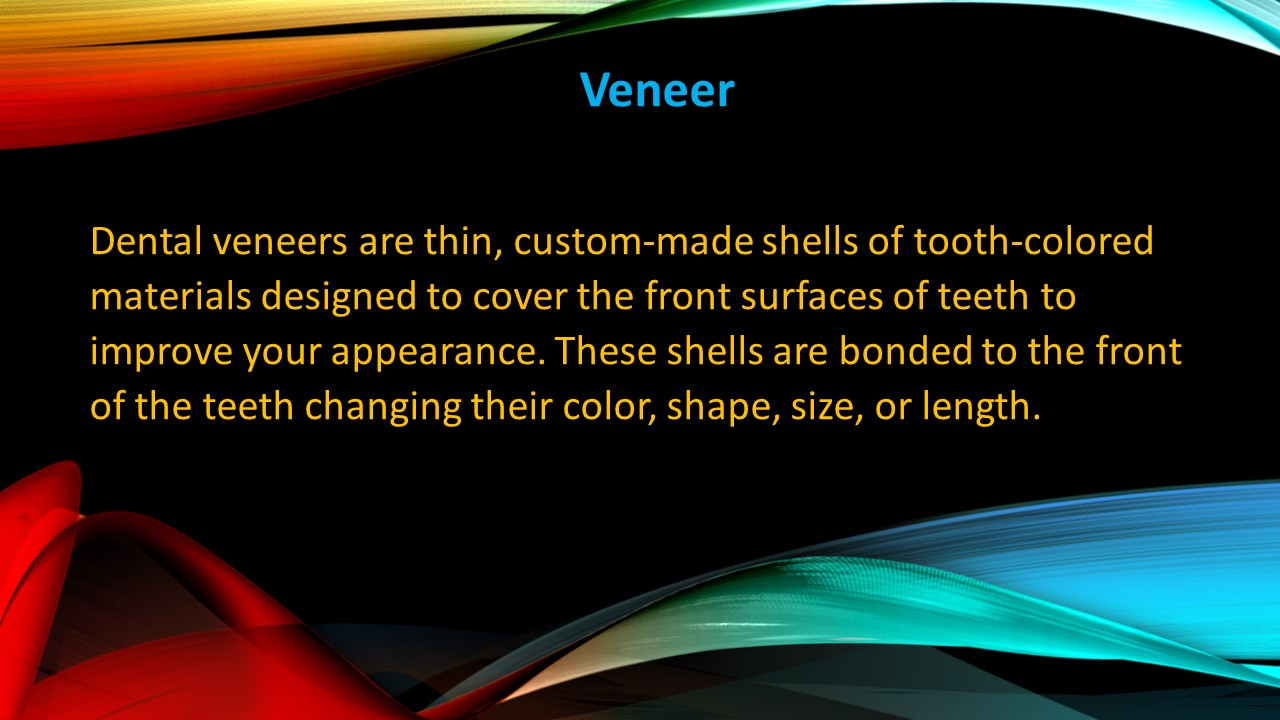Oral Health
Gingivitis [ Gum Disease]
Swelling, inflammation and redness seen around gums caused due to poor oral hygiene.
Brushing twice daily and flossing at least once daily is recommended.
Professional cleaning is advisable.
Cavity
Tooth decay causes Dental cavity. Tooth decay is caused by plaque bacteria on your teeth that convert the sugars in food to acids that can soften tooth enamel and cause a dental cavity. Tooth decay is one of the most common chronic diseases in the US.
Periodontitis:
Advanced disease of gums and bone.
This an advanced stage of gingivitis. If inflamed gums are not treated, plaque continues to build and forms tartar [calculus] which does not come off with normal brushing. The bacteria in the plaque and tartar attack the gums leading to gum recession and the bacteria will eventually destroy the bone causing periodontitis which can further loosen the teeth, and which eventually leads to tooth loss. Professional deep cleaning and regular follow up is recommended.
Crown
A dental crown is a tooth-shaped “cap” that is placed over a tooth to cover the entire tooth above the gum line to restore its shape, size, strength, and improve its appearance. They are cemented in place with various dental cements.
Root canal
Root canal is a procedure in which infected nerve from the tooth is removed from the canal of the root holding the nerve, the canal cleaned, disinfected, and filled with inert material to relieve the patient of pain and infection from the infected nerve
Veneer
Dental veneers are thin, custom-made shells of tooth-colored materials designed to cover the front surfaces of teeth to improve your appearance. These shells are bonded to the front of the teeth changing their color, shape, size, or length.
Implant
A dental implant is a fixed titanium post, like a tooth root that is surgically positioned into the jawbone beneath the gum line that allows your dentist to mount replacement teeth [ crowns, bridge, dentures] into that area.
